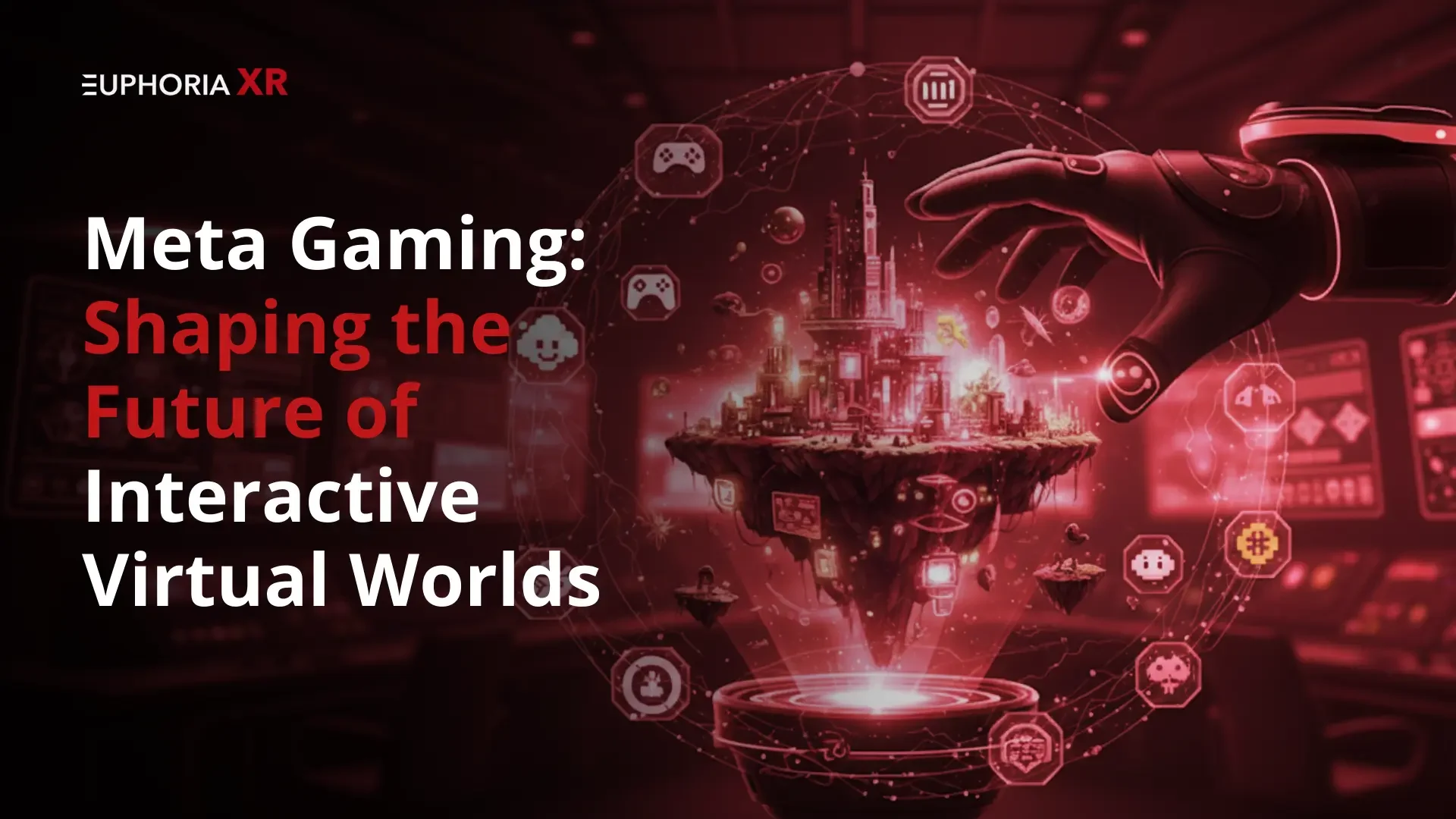I do remember when I lost a game that I believed I had mastered the first time. It was not that I had made a wrong step or failed to find a roll of the dice. It was that my opponent knew something I did not; they knew the meta. Before the game could begin, they had studied, learned strategies outside the game, and applied them to beat me.
That is when I understood that it is not only playing to win today, but meta-gaming. And it is not only transforming the way we play but also the way games are created and the way we interact with fully simulated worlds.
What is Meta Gaming?
Let’s start simple. When gamers are playing with information or strategies that are not contained in the game itself, then this is referred to as meta-gaming.
You can imagine that the rules of the game are one thing, and the strategies surrounding the rules are the meta. That is why you will look up the most optimal build online before starting a new RPG, or why eSports teams will spend hours analysing replays to identify points of weakness.
Most Effective Tactics Available is the phrase that is usually defined as the word meta. And that is a pretty good way to think about it: it is all about trying to find the best, smartest way to win, even though it might involve leaving the world of the game to find solutions.
Related: https://euphoriaxr.com/meta-ai-the-future-of-innovation/
Meta Gaming in Role-Playing Games (RPGs)
You have probably experienced meta-gaming in action, in case you ever played Dungeons and Dragons or another tabletop RPG.
The following is an illustration: Your character has never encountered a vampire. However, as a player, you are aware of movies and books that silver is harmful to vampires. When you apply that knowledge to the game, you are meta-gaming.
Certain gamblers claim that this destroys the story. It is just that in RPG, you tend to live vicariously through the eyes of your character, not the character of your own. Strategically going directly into a trap, as you have done before in a past session, could just make things equal in a group.
However, meta-gaming in RPGs is not necessarily a bad thing. Suppose your character is a trained engineer, and you yourself, in life, understand how machines operate. Simulate smarter decision-making with your knowledge of the world? That is capable of enriching the story rather than destroying it.
In RPGs, therefore, meta-gaming is a juggling act. Excess of it, on the contrary, spoils the mystery. It can help enrich the story, make the role-play more authentic, and make the game more enjoyable for all.
Meta Gaming in Competitive Video Games
In a tournament, meta-gaming is not only typical, but it is also anticipated in the case of competitive video games.
Consider esports such as League of Legends or Dota 2. The newest balance patches already reveal to a team the champions or heroes that are in the meta before the first match has started. They can read tier lists, pro replays, and trial-and-error strategizing. The selection of the wrong champion can cost you the game even before you get down to it.
The same thing applies to fighting games. Players counter-pick; sometimes, they pick a fighter that specifically capitalizes on the weakness of an opponent. That’s pure meta-gaming. To make it fair and even, it is common in many tournaments to blindfold and make certain that the other player is not aware of the decision he or she is going to make.
Games such as Magic: The Gathering Arena or Hearthstone live and breathe on the meta as well. Complete societies follow the birth and death of deck figures. It might be aggressive rush decks one week, then control-intensive the next. When you are not following the meta, you are most likely to be lagging.
The key point? In competitive games, meta-gaming is not based on the idea of cheating and survival. Players who follow the meta succeed, and those who do not tend to lose.
Are you willing to make your idea come true? Draw your next gaming project today.
Meta Gaming Strategies in Virtual Worlds
Now we can enter the world of virtual reality, such as MMOs, open-world games, or VR games. Meta-gaming in this case assumes interesting forms.
Kiting: This is something you have likely done without even considering it. When you drag enemies to secure positions where you can strike them at a relatively minimal risk, that is when that happens.
Snaking: In racing games, players found that drifting back and forth would result in mini-turbo boosts. The result? Endless acceleration that will have amateur racers behind.
Speedrunning: Whole communities develop around discovering all tricks, glitches, and shortcuts to complete games at a speed nobody has ever imagined.
However, meta-gaming across virtual worlds may also be boundary crossing. One of its infamous manifestations is stream sniping, where users view a live stream of another player so they can spot them and assault them. Most platforms have prohibited it completely as it provides an unfair advantage.
Nevertheless, not every meta-strategy is poisonous. Actually, they are usually the reason behind the longevity of games even after they are published. Societies live on trial and error, trying and testing new tricks. Most virtual worlds would be very stagnant and predictable without meta-gaming.
The Psychology of Meta Gaming
What is behind such an orientation of players to meta-gaming? It is a matter of the way we are wired in our brains.
It is human nature to seek a shortcut. This mental efficiency, as psychologists refer to it, we are continuously attempting to find solutions to problems in the simplest manner. Nobel Prize-winning writer Daniel Kahneman reveals in Thinking, Fast and Slow that individuals are fond of adopting quick-thinking processes whenever complex matters are presented to them. In games, that usually implies being meta-followers.
There’s also social proof. When we watch pro players or streamers playing with a particular tactic, we think it must be the most effective one. It is then replicated by communities, and it is the prevailing strategy all of a sudden.
Loss aversion, also, must not be forgotten. Behavioral economics studies indicate that individuals experience the loss pains twice as hard as the happiness of winning. In order to evade such pain, players will follow proven meta-strategies instead of taking risky actions.
In other words, meta-gaming is a subset of psychology, a subset of survival instinct. It makes players feel more successful, competitive, and as if they belong to the bigger community.
Explore how a top NFT Makers & Metaverse Development Company like EuphoriaXR
can make your vision come to life in digital form.
The Impact of Meta Gaming on Game Design
Game developers are aware of the fact that players will always seek the best tactics. This is what made meta-gaming such a big influence in the design of games today.
Here’s how it plays out:
Balance Patches: Developers publish patches to make nerf characters stronger or less powerful. This prevents the domination of one strategy over the meta.
New Content: New maps, items, or characters will disrupt the meta and prompt players to reconsider their strategies.
Anti-Cheat Measures: To stop unfair meta exploitation, such as bug abuse or stream sniping, devs apply more powerful detection systems and community regulations.
A study at the Game Developers Conference (2022) revealed that more than 80 percent of the multiplayer titles developed today include post-launch changes to their balance in the design process, namely to address changing metas.
In a nutshell, meta gaming not only has an impact on players. It is the force that motivates developers to design games in such a way that they remain fun and fair, and challenging across time. And without this perpetual tug-of-war, in a short time, many games would be losing their edge, as well as their audiences.
Meta Gaming and the Future of Interactive Virtual Worlds
Meta gaming will become even more powerful as gaming becomes more immersive with VR and AR. These simulated worlds are so close to the real and the game that they make the metagame even more effective.
In virtual fighting games, say, a player may find out which weapon-swinging behaviour is the most efficient in terms of energy consumption, and that involves much more physics and strength than regulation. Attempting to predict resource demand and trade manipulation, which are already metagame virtual economies in MMOs, is an attempt to disrupt the market. And with the growth of Metaverses, we will find meta-strategies regarding social interactions, world-building, and ownership of the digital.
Meta gaming will not only be about winning in the future but also affect the way players build learning, cooperate, and even make real money on the virtual platforms.
Is Meta Gaming Good or Bad?
Then, is meta-gaming the savior or villain of the contemporary play? The truth is, it’s both.
The Good:
Motivates the players to be creative and think strategically.
Creates a community by players sharing tricks, guides, and discoveries.
Maintains games with modifications to the playstyle and stretching creativity.
The Bad:
It is immersion-breaking, particularly in narrative RPGs.
Risks take unfair advantage in connection with exploits or stream sniping.
Limits sometimes work against variety; everyone crowds to the “best” strategy.
Finally, meta-gaming is the desire in human beings to be better. It may seem wronged when mistreated, but under the guidance of reason and equality, it can make both players and developers grow.
The actual question is not whether or not meta-gaming is good or bad, but in what ways we discuss it so. And when it is done properly, it is not simply part of the game. It is the future of the interactive virtual worlds.
Make the first move to smarter solutions. See how innovation can be applied to you.
Conclusion
Meta gaming is no longer merely a side-effect of intelligent players; it is a force behind the development of games. Tabletop RPGs to worldwide esports, and currently into immersive VR and AR, meta gaming influences our cognition, the way we play, and the way developers create the future.
Is it always good? Not necessarily. It may destroy the immersion or cause a lack of fairness in play when abused. However, when it is taken in moderation, it yields creativity, strategy, and innovation.
There is one thing certain: meta-gaming is here to stay. It is going to influence the future of the interactive virtual worlds to push both players and creators beyond the game itself.
Frequently Asked Questions (FAQs)
What does “Meta” mean in gaming?
In gaming, meta is an abbreviation of “Most Effective Tactics Available”. It explains the most effective or optimal strategies that players use to achieve success in a frequently changing balance, updated, and community trends.
Why is meta-gaming important in RPGs?
In role-playing games, the meta-gaming emphasizes the conflict between player and character knowledge. When handled equitably, it enhances role-play and gives it a realistic touch. But excess may spoil the atmosphere.
Is meta-gaming cheating?
Not always. Strategies, builds, or mechanics that are allowed in the rules are fair meta gaming. However, the abuse of glitches, stream sniping, or the use of out-of-character knowledge in an unfair manner is commonly regarded as cheating.
How do developers handle changing metas?
Balance patches, new content, and anti-cheat systems are released by game developers to ensure that metas remain fresh and fair. This makes sure that no particular strategy is used too long.
What role will meta gaming play in VR and the metaverse?
Meta gaming in VR and metaverse platforms will define combat strategies, virtual economies, and social strategies. It will assist players to maximize experiences, and it will also impact the design of these new interactive worlds by the developers.














